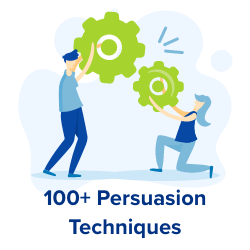Why take Business Advice from Psychologists over Economists?
 This article was originally published on Fresh Business Thinking
This article was originally published on Fresh Business Thinking
—
“Psychologists over the years have suggested that economics is often built upon assumptions that humans are perfectly rational, when in fact we are actually irrational beings. To back this claim, they often give the example of when Economics students walked out of class at Harvard University in 1980, to protest their belief that the standard economics they were being taught had inherent biases which affected them.
During this event it should have been considered that we as humans are not just irrational but also highly social creatures. On the whole, our perceptions of the world are influenced by social norms and the actions of our peers. An experiment conducted in 2012 by Wood, Brown and Maltby analysed people’s perceptions of their drinking behaviour compared to their peers. The results showed that people’s judgements about the risks associated with their drinking aren’t influenced by the amount of alcohol they consume but rather how it ‘ranks’ among others.
Claims that humans are perfectly rational beings imply that they have unlimited time resources to dedicate to their decision-making process. However, psychologist Thaler, suggests that we are not homo “economicus” but indeed homo sapiens that use an ‘adaptive toolbox’ to make quick decisions. These tools include: heuristics and biases which make decisions for us – which can be fallible for humans.
If humans are as rational as neoclassical economics assume, then they should be aware of their preferences and should not be influenced by context, however there are biases, such as the anchoring and framing effect which prove otherwise.
The anchoring effect occurs when we are subconsciously affected by the numbers that we have seen first, which then affects our subsequent decision making. This can be applied to house valuation and how real-estate agents were given an opportunity to assess the value of a house that was on the market, whilst they studied a booklet of information along with an asking price. The results showed that half the agents saw an asking price that was substantially higher than the original listed price, whilst the other half saw an asking price that was substantially lower. The agents then discussed the factors that had affected their judgements, surprisingly the asking price was not one of these factors. Insisting the listing price had no effect on their response, agents seemed to be wrong as the anchoring effect resulted at 44 per cent.
This shows businesses that not only is the anchoring effect powerful, but that it also applies as much to experts in a field as complete novices. This can tie in with the theme of psychology focusing on trusting the cognitive biases that economists discovered, as they apply to everyone regardless of their experiences and should be considered in all areas of decision making. It is also important for decision makers to consider the anchoring effect in making business decisions. For example, in negotiations they need to be aware that the first number they offer will skew all subsequent agreements to it. They could also consider that they may have to demand that any higher initial number that was proposed to be taken off the table, as ultimately it will influence the discussion.
Another important psychological bias for businesses to consider is the framing effect. The effect was initially discovered in 2008 by Sharpe, Stealin and Huber who looked to investigate people’s choices of soft drinks. They manipulated people’s choices by either removing the smallest option or adding an extra one in the mix. The findings of the study has important applications for marketing strategies, which shows that the way options are framed or displayed to consumers can impact their choices.
It now seems to be known that our behaviours and decision-making is driven not by our conscious self-control, but rather by subconscious cognitive biases and heuristics. Therefore, we are not the rational, omniscient economists that Harvard professors assumed us to be in the past. Today, these findings have important applications which are relative to how businesses and marketing strategies should be handled and developed. So, don’t act like an economist stuck in the past – harness the power of psychology and offer your customers a more persuasive experience.
Philippe Aimé is CEO of Convertize, a persuasion based optimisation platform focuses on biases such as the anchoring and framing effect in businesses. ”



